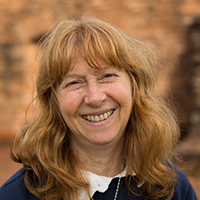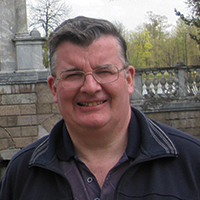By Mark Brolly
Melbourne, 8 May 2017
Australian Prime Minister Malcolm Turnbull made a dash to New York City on 4 May for his first meeting with US President Donald Trump - and a chance to heal any rifts after their infamous telephone call soon after the 45th US President took office in January.
The pair met on the aircraft carrier USS Intrepid, now a floating museum on the Hudson River, to commemorate the 75th anniversary of the Battle of the Coral Sea in 1942: an important strategic four-day battle against Japan for the US and Australia joint forces that tipped the balance of the war in favour of the Allies in the Pacific. Characteristically, Trump dubbed media reports of the allegedly fractious phone call as "a bit of fake news".
But there was more than an echo of Trump in announcements Turnbull made on successive days two weeks earlier - on more stringent requirements for migrants to obtain citizenship (requiring applicants to be "competent in English, have been a permanent resident for at least four years and commit to embracing Australian values") and the abolition of so-called 457 Visas, which allowed skilled workers into Australia to work in their nominated occupation for their approved sponsor for up to four years - with their emphasis on "Australia First" and "Australians First".
Asked by Miranda Devine in Sydney's Daily Telegraph on 21 April about criticisms that the changes were "‘dog whistling’ and racist", Turnbull replied: "What rubbish ... I mean are we, are we proud to be Australian or not? Are we prepared to stand up for Australia, Australian jobs and Australian values or not? Well I am, I know you are, I know your readers are."
Then on citizenship, he said: "If we are passionate patriotic Australians, if we believe in the values that unite us ... you see the genius of this country Miranda, is this; we don’t define ourselves by reference to a common religion, a common ethnicity, you know a common race, and most countries do one way or another. So what we’ve got is shared political values."
South African-born journalist Catherine Marshall wrote on the Jesuit-operated news portal Eureka Street on last month that under the changes, migrants would be held to higher standards than Australian-born citizens.
"If I were applying for Australian citizenship today I would fail the test, since I don't subscribe to Australian values — at least those espoused by Prime Minister Malcolm Turnbull (the inhumane treatment of refugees, the refusal to legalise gay marriage, the deviousness of dog whistle politics)," Marshall wrote.
"Our discord on what constitutes Australian values is irrelevant, of course, since I am the sort of migrant Turnbull would approve of: white, English-speaking, hard-working, law-abiding, adaptable and of Christian heritage.
"But if we forget for a moment my skin colour, mother tongue and religious heritage, we are left with the attributes that the vast majority of migrants, by their very nature, possess: a willingness to work hard, to abide by their adopted country's laws and to adapt to their new circumstances."
But Dr Kevin Donnelly, a Senior Research Fellow at the Australian Catholic University and former chief-of-staff to a former ministerial colleague of Turnbull's, wrote in The Daily Telegraph that the Australian Government finally appeared to be learning from the European experiences of the damaging and destabilising effects of multiculturalism, unrestricted immigration and Islamic terrorism, quoting German Chancellor Angela Merkel's remarks two years ago that multiculturalism was a failed policy that led to "parallel societies” and that immigrants must learn German and live by German values.
"At the same time former prime minister David Cameron argued that Britain was a Christian nation and that all who lived there must accept that its political and legal institutions and way of life are paramount and must be defended," Donnelly wrote.
"After last month arguing that 'Australia is the most successful multicultural society in the world' and we are not defined by 'race, religion, or culture' the Prime Minister appears to be learning from what is happening overseas.
"Mr Turnbull now argues that Australia’s migration programme must better contribute to 'our social cohesion while enhancing our security' and as a condition of citizenship migrants must embrace 'Australian values' and 'our cultural values' ... In both the US and the British pledges it’s clear that immigrants wanting citizenship must fully embrace and defend the beliefs, values, and institutions of their newly adopted country. Holding on to enmities and hostilities from overseas or importing unacceptable customs and traditions are not allowed.
"It is also vital that those who live in Australia acknowledge and celebrate what Prime Minister Turnbull refers to as 'our cultural values'. Not all cultures are the same or worthy of the same respect.
"Australia, compared to our Asian neighbours and Islamic countries in the Middle East, is a Western liberal democracy that owes its origins to our Judaeo-Christian heritage and a history intimately associated with the rise of Western civilisation and the Anglo-sphere."
One Catholic voice sadly missing from the current debate is that of the late, much-loved Bishop Joe Grech of the Victorian Diocese of Sandhurst, who died in 2010.
Just over 10 years ago, Maltese-born Bishop Grech, responding to another of the Australian Government's moves to force future migrants to demonstrate a basic level of English-language skills, as well as knowledge of the Australian way of life and values, said citizenship must be taken seriously, but not placed out of reach of people, particularly because of language or age.
“While we do not support the introduction of a formal citizenship test, we are open to the introduction of a compulsory untested citizenship course,” Bishop Grech, as Bishops’ Delegate for Immigration Issues, said on 14 December 2006.
“We believe that a formal test would be an impossible burden on many migrants, especially on many humanitarian entrants and elderly people.”
Two months later, he warned that "an unfortunate consequence of this confrontational approach is that some people could be discouraged from even attempting to seek Citizenship”.
Dual centenaries
Expect reminders of Camelot when the centenary of President John F Kennedy's birth in Massachusetts is celebrated on 29 May.
Another centenary passed more quietly last week: 6 May marked 100 years since Melbourne's legendary Archbishop Daniel Mannix began his 46-and-a-half years leading the Church in Australia's second most populous city. The Irishman's tumultuous years as an Irish tribal and religious leader in Melbourne almost exactly coincided with Kennedy's life - Dr Mannix died on 6 November 1963, less than four months shy of his 100th birthday and little more than two weeks before the tragedy in Dallas.
More than a few older Melbourne Catholics still have memoriam cards produced that month to mark the passing of the Archbishop and the Catholic President.
Brenda Niall's excellent 2015 biography of the Archbishop, Mannix (Text Publishing, Melbourne), recalls what a troublesome prelate Mannix had been.
When he succeeded another Irishman, the genial Archbishop Thomas Carr, he had been the leading opponent of conscription in a referendum held the previous year, which had been defeated. The day before Carr's death, Prime Minister Billy Hughes won an election, promising to hold a second referendum to introduce conscription. It, too, was to be defeated.
Governor-General Sir Ronald Munro-Ferguson reported to the Colonial Office in London: "Dr Carr is dead. That firebrand Mannix is now Archbishop of Melbourne."
The divisive nature of the Conscription debate may be gauged from the remarks of Hughes supporter Herbert Brookes (brother of the first overseas player to win Wimbledon, Norman Brookes, in 1907), a businessman, pastoralist and son-in-law of former Prime Minister Alfred Deakin, who said: "Let Sinn Fein stand shoulder to shoulder with the Hun and the hosts of Satan."
When Mannix refused to raise his biretta for God Save the King in 1918, Brookes demanded that Mannix be prosecuted for sedition.
In 1920, the Royal Navy intervened to stop Mannix landing in his native Ireland during a time of high tensions there, and landed him instead in Penzance. He was not to visit Ireland for another five years. In 1921, Mannix told The Times of London: "Since the battle of Jutland, the British Navy has not scored any success comparable with the chasing of the Baltic from the Irish shores and the capture without the loss of a single British sailor of the Archbishop of Melbourne."
Long wait over
Catholics in North Queensland have a new bishop after a three-year wait, with the episcopal ordination last week of Bishop Timothy Harris as sixth Bishop of Townsville.
Bishop Harris succeeds the ecumenist Bishop Michael Putney, who died of cancer on 28 March 2014.
One person who may be most pleased that the wait is over is Fr Mick Lowcock, the Administrator of the Diocese during the interregnum. His parish of Mt Isa is in the far west of the diocese (which is more than three times the area of England but with a population of only 260,000, of whom about 76,000 are Catholics) and is 900 kilometres (560 miles) from the cathedral city of Townsville on the east coast that looks out on the tropical and topical Coral Sea.
It is about the same distance as a road trip from cosmopolitan London to the bleak environs of the Scottish Highlands, capital of Inverness.
09 May 2017, The Tablet
Turnbull channels Trump on the thorny issue of migration
 Loading ...
Loading ...




What do you think?
You can post as a subscriber user ...
User comments (0)